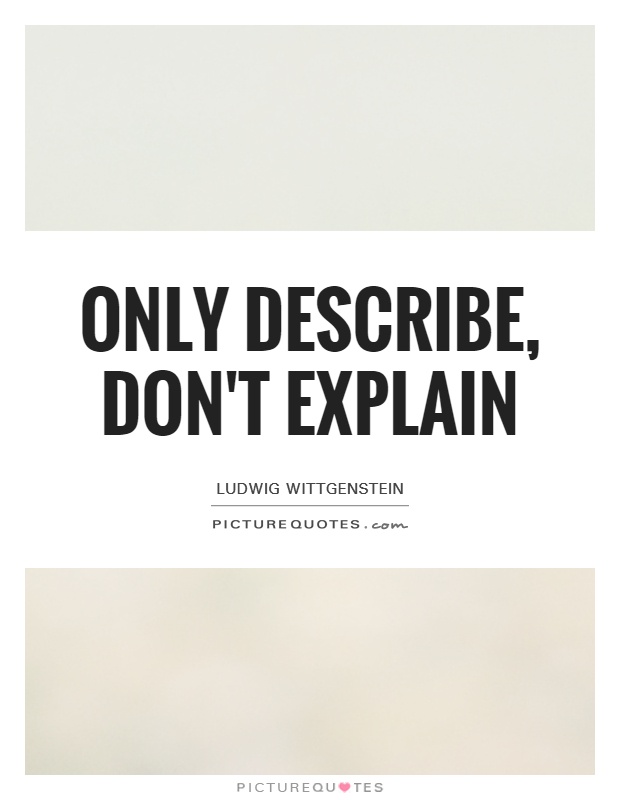Only describe, don't explain

Only describe, don't explain
Ludwig Wittgenstein, a renowned philosopher of the 20th century, is often associated with the concept of "only describe, don't explain." This idea is central to his philosophy of language and understanding of the world. Wittgenstein believed that language is not meant to explain or represent reality, but rather to describe it. In other words, language is a tool for communication and expression, not a means of uncovering some deeper truth or essence.For Wittgenstein, the act of describing is a way of capturing the complexity and richness of the world around us. By focusing on the surface details and particulars of a situation, we can gain a deeper understanding of it without resorting to abstract explanations or theories. This emphasis on description over explanation is evident in his famous work, the Tractatus Logico-Philosophicus, where he argues that the limits of language are the limits of our world.












 Friendship Quotes
Friendship Quotes Love Quotes
Love Quotes Life Quotes
Life Quotes Funny Quotes
Funny Quotes Motivational Quotes
Motivational Quotes Inspirational Quotes
Inspirational Quotes